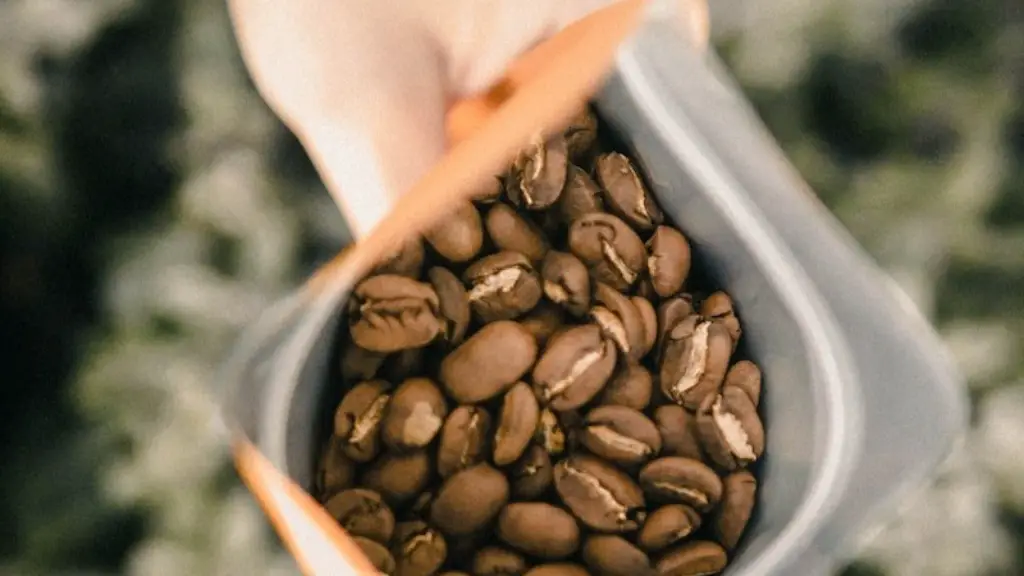Background
Starbucks is one of the largest and most successful coffee brands in the world. Founded in 1971, the company has grown to more than 30,000 stores in over 78 countries. Starbucks has become an integral part of many people’s everyday lives, providing them with their favorite hot and cold drinks, snacks, and meals. But despite Starbucks’ success, one question that often comes up is: Does Starbucks grow its own coffee?
Industry Insights
According to a spokesperson from Starbucks, the company does not grow its own coffee. Instead, the company works with farmers and agencies around the globe to purchase high-quality coffee beans for use in its stores. Starbucks seeks out beans from family farms and sustainable growers in more than 30 countries throughout Africa, South America, and other areas of the world. The company carefully vets its suppliers and partners to ensure they are meeting sustainability standards, ethical practices, and quality expectations.
Global Perspectives
Despite not owning or growing their own coffee, Starbucks works directly with farmers to ensure traceability and quality control. Additionally, Starbucks helps to build strong relationships with each of its suppliers. The company often purchases more than one type of bean from the same farm to build trust, minimize costs, and better track shipments. In doing so, Starbucks is able to learn about the flavor profiles each type of bean offers and guarantee consistency across all its locations.
Ethical Practices
In addition to buying from responsible farmers and agencies, Starbucks seeks to improve social and environmental conditions by investing in resources and programs that help support its farmers and the local community. As part of the company’s commitment to ethical practices, Starbucks works with the farmers to develop sustainability programs that support the growth and cultivation of their coffee beans. Programs like Coffee and Farmer Equity (CAFÉ) Practices help ensure that farmers receive a higher rate of pay for their beans and are kept in the loop of any regulations, standards, or upcoming changes that may affect their business.
Business Strategies
In addition to its commitment to ethical practices, Starbucks also works to ensure that it can consistently provide its customers with a quality product. To achieve this, the company has a dedicated Procurement team that seeks out the best coffee beans available in the market. The team works with suppliers to source coffee beans with specific flavor profiles, certifications, and sustainable production practices. They then identify and purchase beans that meet their specific needs, balancing both quality and price.
Coffee Sourcing
Starbucks relies on coffee brokers and suppliers to assist them in the purchase and transport of beans from farms all over the world. As part of its coffee sourcing process, the company works directly with suppliers and brokers to identify and purchase coffee beans that meet its desired flavor profiles and quality standards.
The company also uses a grading system when evaluating each region’s coffee beans. After samples of the beans have been collected and brought back to the company’s headquarters, it is then graded and evaluated on 8 criteria which includes the beans’ aroma, body, taste, mouthfeel, sweetness, and more. If the beans meet Starbucks’ standards, they will be deemed ready for purchase and then transported to the company’s roasting facility.
Roasting Process
Once the beans have been purchased, they are then shipped to the company’s roasting facility where they will be prepared for sale. The beans are roasted in small batches to ensure that each one meets the company’s desired flavor profile.
The roasting process is carefully monitored and adjusted throughout the process to ensure consistency. After the beans have been roasted, they are then cooled to room temperature and packaged for sale. From there, the coffee beans are shipped to Starbucks stores around the world.
Consumer Education
To help educate consumers about the coffee beans it uses, Starbucks posts information about each of its varietals online. This includes information about the bean’s country of origin, flavor profile, and other related information. Additionally, Starbucks provides baristas with extensive training on different coffee beans and brewing methods, ensuring that their customers are served the best-tasting cup of coffee each and every time.
Consumer Appreciation
Consumers can reap the benefits of Starbucks’ dedication to providing ethically-sourced and delicious coffee. By choosing Starbucks, they are supporting a company that values relationships with its suppliers and farmers, and familiarizing themselves with the stories and background of each one. This helps to support the hardworking people behind each of the coffee beans, and provides customers with a memorable and delicious experience.
Cost Efficiency
By working with reputable global suppliers, Starbucks is able to guarantee the quality and consistency of their coffee beans while keeping costs low. The company works with its suppliers to negotiate favorable pricing and commit to a long-term relationship. This ensures that all beans purchased for use in Starbucks stores are bought at a price that is fair for both the supplier and the company.
Research and Development
Starbucks is constantly innovating and improving its products to keep up with the ever-changing needs and tastes of its customers. To do this, the company continuously researches new flavors and methods of brewing, often drawing inspiration from its suppliers and farmers. The company also assesses trends within the industry and experiments with different brewing techniques and flavor pairings.
Marketing Strategies
To market its coffee beans to consumers, Starbucks invests heavily in advertising and promotional campaigns. From television commercials and digital campaigns to print ads and store displays, the company works to ensure that their products have maximum visibility. Additionally, Starbucks holds events to invite customers to get a behind-the-scenes look at the care and craftsmanship that goes into each cup of coffee.
Sustainable Practices
In recent years, Starbucks has made a commitment to use 100% sustainable and recyclable packaging for all of its products. The company also works with local providers to source sustainable materials whenever possible. From paper cups and straws to aluminum cans and plastic bottles, Starbucks works to ensure that each of its products is free of toxins and produced in an environmentally-conscious way.



